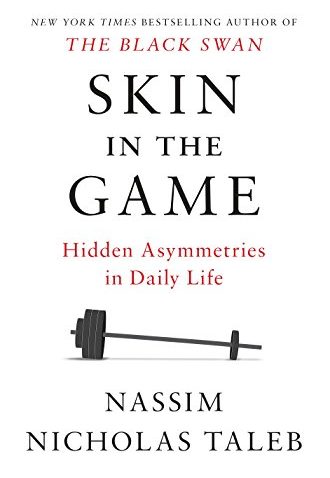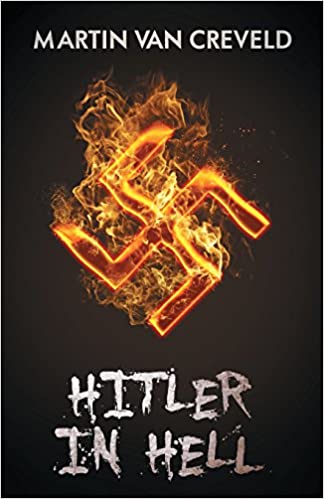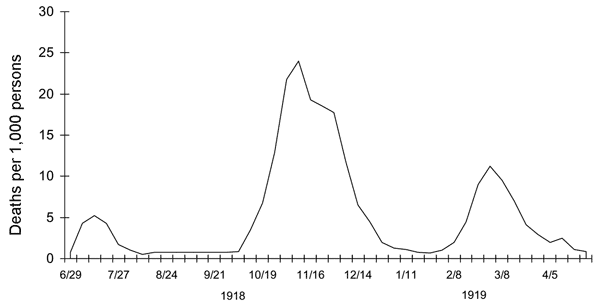

Rebel Yell has said that a communist can live with a national socialist as long as they have the same ideas of cleanliness and tidiness. I incline to agree, and it is in this irenic spirit that I declare my willingness to live with Steven Pinker, but NOT agree with him. We are not as far opposed as two totalitarians, but we have our issues.
I have just read Steven Pinker’s Enlightenment Now and Nassim Nicholas Taleb’s Skin in the Game; they make a fascinating contrast in styles. The issue between them concerns two different and largely incompatible ways of knowing the world.
I had heard that Taleb had written incendiary reviews of Pinkler’s previous work, The Better Angels of Our Nature, wherein Pinker argues that we have entered an era of declining losses by death in war, the Long Peace, following World War 2. Taleb thinks this is nonsense; the post world war 2 peace is just an artifact of not having had a serious war in 70 years, which will most assuredly come, says Taleb, we know not when, but we had better not bet against it.
Pinker is a Montreal-born professor of psychology who teaches at Harvard. He opposes political correctness, disparages the blank slate idea of mind, upholds the reality of group IQ differences, regards Islam with a baleful eye, and rightly considers that we are living in and age of unprecedented, widespread and increasing prosperity. His main axis of attack is against the prevailing catastrophism and cultural negativism at universities and in modern culture more generally. His books demonstrate that the world is getting better for everyone, rapidly. So far so good.
Taleb says in effect, not so fast, dude. On the main contention of The Better Angels of Our Nature, that human propensity for violence is declining, Taleb maintains:
we as humans can not be deemed as less belligerent than usual. For a
conflict generating at least 10 million casualties, an event less
bloody than WW1 or WW2, the waiting time is on average
136 years, with a mean absolute deviation of 267 (or 52 years
and 61 deviations for data rescaled to today’s population). The
seventy years of what is called the “Long Peace” are clearly
not enough to state much about the possibility of WW3 in the
near future.
Pinker’s cheerful reasonableness really grates in Taleb, and I can see why. Taleb comes from the Dark Side: his formative experience was growing up in Lebanon’s never ending civil war in the 1970s, whereas Pinker’s folk came from the Snowdon-NDG side of Westmount Mountain in Montreal, where hard working Jewish immigrants rose the ladder of success after escaping anti-semitic persecution in Tsarist Russia.
So one guy in his youth experienced the world going to shit, and the other experienced the pleasant rise from Yiddish-speaking working class to professoriate in two or three generations of Anglo-Montreal. And then off to Harvard where, through a stellar intelligence and hard work, he has written a series of highly successful books, most of which attack contemporary nonsense.
Yet Pinker manages to go off the rails in ways that send me and Taleb crazy. He accepts that the world will on average experience a 1.5C rise in temperature by the end of the 21st century, and perhaps by 4C or more. (Many reasonable people think so too, though I think the higher figure of a 4 degree C rise in a century is rubbish.) In any case the projections of increase are beside my point.
It is the proposed solution and his treatment of it that crosses over into well-reasoned insanity. It concerns planetary engineering by cloud seeding to lower the intake of solar energy.
Pinker writes:
For all these reasons, no responsible person could maintain that we can just keep pumping carbon into the air and slather sunscreen onto the stratosphere to compensate. But in a 2013 book the physicist David Keith makes a claim for a form of climate engineering that is moderate, responsive and temporary.“Moderate” means that the amounts of sulfate and calcite would be just enough to reduce the rate of warming, not cancel it altogether…. “Responsive” means that any manipulation would be careful, gradual, closely monitored , constantly adjusted and, if indicated, halted altogether. And “temporary” means that the program would be designed only to give humanity breathing space until it eliminates greenhouse gas emissions and brings the CO2 in the atmosphere back to preindustrial levels.
How many heroic assumptions are made in this paragraph?
- that we know enough to calculate the amounts of particulates to dump into the atmosphere when we cannot even measure an average global temperature when no such thing as an average global temperature exists – and that is just the beginning of the heroic assumptions along this path of reasoning.
- that there would exist an institutional opposition strong enough to call a halt to the engineering, when all our experience to date shows that opposition to measures to control global warming are treated as a combination of treason and heresy.
- that we can reduce CO2 to preindustrial levels without engendering the very poverty that burning fossil fuels extracted us from.
- That we should reduce CO2 to preindustrial levels, when the evidence points to the greening of the planet under the influence of more CO2, which had sunk in the last ice age to levels so low (140 ppm) that vegetation was starving for the CO2 it craves.
No engineering of the planet can by its nature be moderate, responsive or temporary. Can you imagine the shit storm if someone challenged the idea that global cloud seeding was not merely working, but plunging us back into the next ice age? That sea ice was expanding, glaciers descending and climate season shortening? Is there the slightest chance that the current toxic debates on climate change would be less dangerous when we have a world wide program of “moderate”, “responsive” and “temporary” cloud-seeding?
I kept hearing that Nassim Taleb was contemptuous of Pinker. He referred to him as a “higher level journalist” in his recent book, Skin in the Game. Then I read Pinker’s modest proposal, in the light of Taleb’s analysis of risk, and I understood. The tails of the distribution curves are always longer and fatter in reality than they are in the pure Gaussian bell curve, says Taleb, and gambling the planet on some wanker’s idea of “moderate, responsive and temporary” planetary engineering struck Taleb as the kind of idiocy only a Harvard professor could believe. As David Keith is also a Harvard professor, the two of them are drinking each other’s bath water, and I am sure both are splendid chaps, but they do not understand risk, and I think Taleb does.
Then, in Pinker’s final chapter on religion and humanism, Pinker comes up with this sort of gem:
“If the factual tenets of religion can no longer be taken seriously, and its ethical tenets depend entirely on whether they can be justified by secular morality, what about its claims to widsom on the great questions of existence?”
I keep wondering whether Pinker has connected the dots between religious decline and the raging SJWs he confronts at Harvard. Does he not see a link between empty rage, the confused, deeply unhappy people, and the fact they have been raised on a monoculture of “secular morality”: that the students he opposes and who try to shout him down are the products of a culture in decline from right understanding of man’s place in the universe? In short, the products of secular humanism?
The content of secular morality is a weak reed; it changes with every passing fancy, it denies the objective nature of truth. The difference between Islam and western concepts of political correctness is that Islam has fixed its “political correctness” for all time, ours changes with the week, into ever more insane attempts to explain inequality by every device other than that people, cultures, and religions are unequal, in fact, objectively unequal.
In short, in matters of what is central to happiness, the modern student is a shorn lamb in the wind, and people like Pinker are the sheep shearers, though they do not know it. Pinker wonders why their environment is so ideologically extreme and anti-enlightenment. Here we pass over into Jordan Peterson territory. Peterson has been dealing with the little savages from suburbia and has drawn direct links between secular values, post modernism, and the absence of religion.
Nevertheless, I warmly recommend both Pinker and Taleb. Pinker knows the world by facts and book learning and discussion; the other knows it by taking big risks with money and surviving, and by working out heuristics, which is Greek for rough and ready rules. The man who wrote the Black Swan and made a fortune betting against the real estate boom which crashed in 2007 is not to be trifled with. Taleb’s defence of religion is a remarkable insight into its value. He comments that God put Jesus into fully human form to show He had skin in the game. Taleb is full of insights into bullshit detection, and his view of Pinker is that the professor is a higher form of BS. This may be true, it is certainly uncharitable, but Pinker can be read to profit regardless.
I know whom I would trust in a bar fight, both to see it coming and to get out in time, and to have enough tough friends to make an attack on us a painful waste of time.
I doubt that Pinker has seen the inside of the kind of bar where men can be seen wearing reflective outerwear from working on the roads, and where the men drink American domestic beers. But he would make an excellent dinner guest, as long as we could avoid the topic of religion and global warming.





